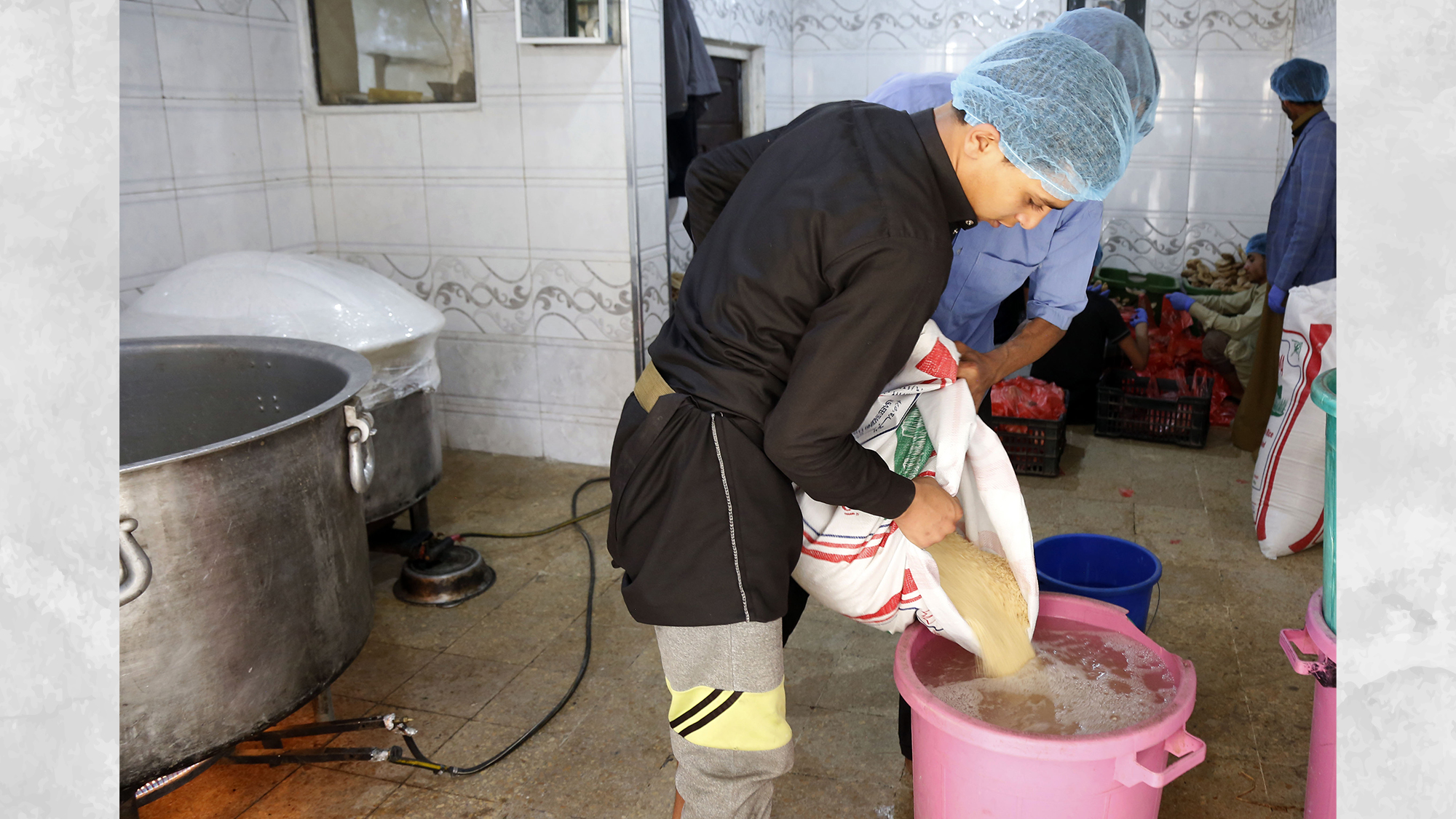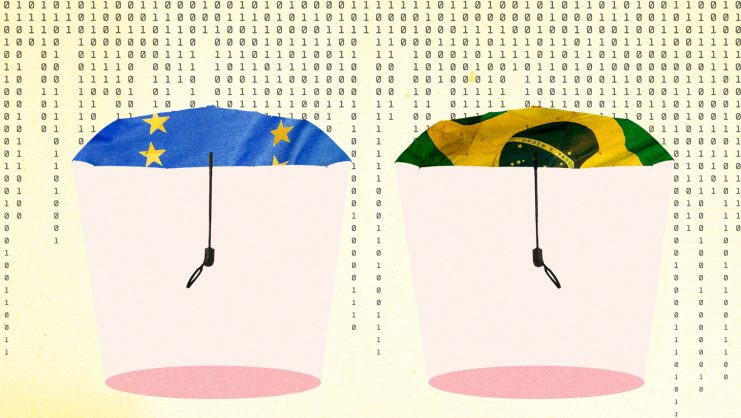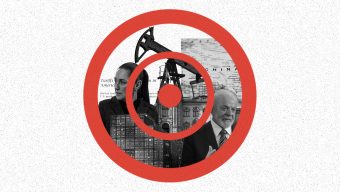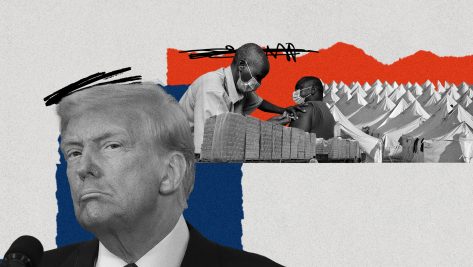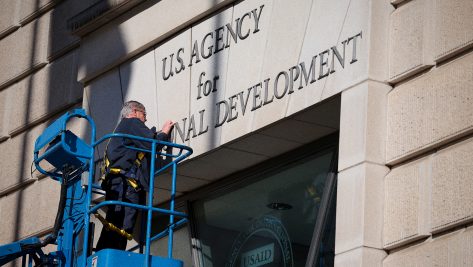Founded by Spanish chef José Andrés in response to the hurricane that hit Haiti in 2010, World Central Kitchen (WCK) works with the mission to be the first to the frontlines, providing meals in response to humanitarian, climate, and community crises. The NGO sets up relief kitchens in crises-affected areas in order to cook and distribute hot meals, partnering with chefs on the ground, restaurants, food trucks, and other organizations. In 2017, WCK served more than 3.7 meals in Puerto Rico after the island was hit by Hurricane Maria, provided more than 25 million meals during the Covid pandemic, and was in Ukraine with meals for displaced persons and those in conflict zones upon Russia’s invasion in 2022.
WCK has also been active in Gaza – as well as in Israel and Lebanon – since hostilities began in early October. WCK was able not only to ship 200 tons of food to Gaza with the “Safeena” mission which is in collaboration with the humanitarian organization Open Arms, but also negotiate with the parties involved to ensure that humanitarian aid reached the population.
Many humanitarian organizations argue that focusing on sea routes distracts from the larger issue of Israel’s blockade on land aid and the stalled movement of trucks from Egypt and Jordan. This method of aid delivery is seen as inadequate and merely symbolic; for example, 200 tons of aid represent just 12 trucks, compared to the more than 2,000 trucks idling at the Rafah crossing. This crossing is pivotal as it is the only land entrance capable of handling the scale of the humanitarian crisis and mitigating famine in Gaza. Meanwhile, the International Court of Justice’s directives remain unenforced, allowing conditions to deteriorate further.
Recently, WCK resumed operations after a four-week hiatus taken in the wake of the tragic killing of seven of its staff in an Israeli airstrike on April 1. Since October 7, Israel’s offensive in Gaza has killed more than 200 aid workers (more than 175 of whom were UN staff), hundreds of people waiting for humanitarian aid deliveries have been shot at, and 150 UNRWA facilities have been either completely or partially destroyed. This is the highest aid worker death toll in at least the last two decades.
It is essential that aid workers are protected, not attacked. Access for humanitarian relief to civilians in need is regulated in Rule 55 of the Fourth Geneva Convention.
If you have to feed people, you need professional chefs.
This is the background against which WCK finally resumed operations on May 5 with the opening of its third high-capacity field kitchen in Al-Mawasi (named after Damian, one of the workers killed on April 1), complementing the existing sites in Rafah and Deir al Balah, as well as the 68 WCK community kitchens throughout Gaza.
I worked with the United Nations World Food Program and other multilateral organizations for more than a decade and I am impressed and heartened by WCK’s rapid ascent and ability to mobilize resources. The courage of the organization and its many workers in carrying out operations in places where humanitarian access is extremely difficult is admirable, for lack of a better word.
Since then, José Andrés and WCK have attracted international attention for their involvement in conflict-riddled areas and much of the organization’s high profile is linked to that of Andrés, whose conviction that food is a positive agent of change in communities in need has led him to push the idea that in crisis situations, food is as critical as medical services and infrastructure reconstruction. He has said, “When you need medical service, you bring doctors and nurses. When you need the rebuilding of infrastructure, you bring in engineers and architects. And if you have to feed people, you need professional chefs.”
The approach of WCK is especially effective during humanitarian crises when the need for nourishment is urgent. Research suggests that hot meals not only provide essential nutrients but also restore a sense of normalcy and comfort amidst turmoil. Unlike traditional aid organizations, which typically distribute food and cooking utensils for families to prepare meals themselves, WCK focuses on preparing and serving hot food directly from large community kitchens. This method offers several distinct advantages, such as streamlined logistics, centralized support, guaranteed hot meals, and potentially reduced environmental impact. However, it may also diminish community empowerment and compromise cultural appropriateness when families are unable to prepare their own meals.
WCK has developed other programs to help in humanitarian emergencies in addition to its hot meal scheme including culinary training to help people transition to careers in hospitality, clean cooking programs that educate on the use of safe more environmentally friendly fuels, and a food producer network that strengthens local food economies.
By the end of 2021, World Central Kitchen (WCK) reported significant financial growth, with revenues reaching nearly $270 million in donations and subsidies, up from less than $400,000 just four years prior. This sharp increase underscores robust support for the organization, which has been recognized with several prestigious honors, including the 2021 Princess of Asturias Award for Concord.
WCK has demonstrated its innovative capabilities and the strength of its engagement through rapid responses to global humanitarian crises, significantly influenced by its founders’ strategic negotiations and networking. However, a pressing issue remains: as WCK continues to expand and solidify its presence beyond the identity of José Andrés, can it successfully redefine its organizational identity to meet future challenges?
Moreover, while some relief workers welcome the growth of WCK, they attribute it to media-driven support that sometimes overshadows other seasoned humanitarian organizations. Some wonder why humanitarian access is granted to these media-driven organizations yet is denied to others that are more established or have a specific humanitarian mandate, such as UNRWA or the Red Cross. As the landscape of aid continues to evolve, many organizations are reassessing their operational criteria. Decisions about where to operate now consider not only immediate needs but also complex factors such as response capabilities, adherence to the classic humanitarian principles – humanity, impartiality, neutrality, and independence – and other strategic elements like priority setting, accountability mechanisms, and alignment with major humanitarian funding agreements like the Grand Bargain.
New players like WCK are reshaping the humanitarian aid landscape in real time. Despite facing severe challenges, including significant team losses, WCK’s unwavering commitment fuels its innovative approaches, enhancing its ability to extend its reach. It’s crucial that humanitarian organizations like WCK continue to secure support and resources to maintain its impact.
The international community must ensure humanitarian organizations are supported and protected, allowing them to operate safely and effectively in crisis zones. Upholding humanity and solidarity, WCK’s efforts not only meet immediate needs but also exemplify resilience and adaptability in humanitarian responses.
© IE Insights.



